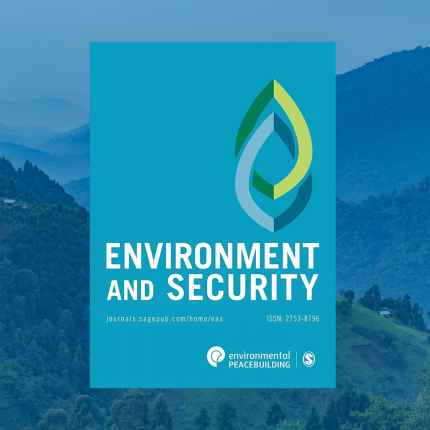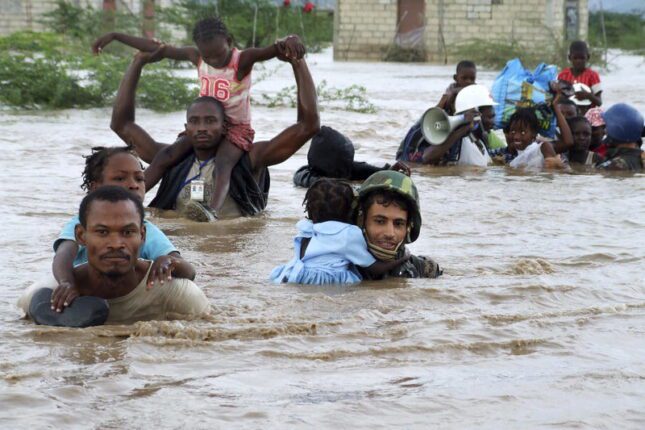-
ECSP Weekly Watch | January 22 – 26
›A window into what we are reading at the Wilson Center’s Environmental Change and Security Program
World Groundwater Levels Face Accelerated Decline
Courtesy of Reuters, Reported by David Stanway and Edited by Tomasz Janowsk
Nature recently released a report revealing that global groundwater levels have undergone a widespread and accelerated decline over the past 40 years. Researchers concluded that this has likely occurred as a result of the impact of two factors: unsustainable irrigation practices in dry climates and drought driven by climate change.
-
Environment and Security | Q&A with Editor in Chief, Ashok Swain
›
From Afghanistan, Nepal, and Libya to the Arctic, the new issue of Environment and Security takes a fresh look at emerging issues at the intersection of environment and security. Ashok Swain, Editor in Chief of Environment and Security, spotlights some of the new research and insights in this Q&A with ECSP staff.
Q: The new issue of Environment and Security features an article on Arctic governance, including a close examination of the International Code for Ships Operating in Polar Waters (Polar Code). How do the authors assess this regulatory instrument as it enters its 10th year since adoption?
-
ECSP Weekly Watch | January 15 — 19
›
A window into what we are reading at the Wilson Center’s Environmental Change and Security Program
The Worsening Environmental Impact of the War in Gaza
The Gaza Strip has long been uniquely vulnerable to the climate crisis, with rapid temperature increase and decreasing rainfall plaguing this whole region. Even prior to the current conflict, NGOs in the region and the UN have warned that climate change would be devastating, particularly for food and water security in the Gaza Strip and West Bank.
-
ECSP Weekly Watch | January 8 – 12
›
A window into what we are reading at the Wilson Center’s Environmental Change and Security Program
Loopholes in the UN Climate Plan?
Climate negotiators’ pledges to address climate change at the U.N. conference in Dubai by committing to limit global warming to 1.5 degrees Celsius and achieving net-zero greenhouse gas emissions by 2050 may be less solid than they appear. Scientists argue that these promises lack clear definitions and are filled with loopholes.
-
ECSP Weekly Watch | December 18 – 22
›
A window into what we are reading at the Wilson Center’s Environmental Change and Security Program
Severe Water Crisis in Gaza
As intensive coverage of the war in Gaza has waned, the severe water crisis there has only worsened. Constant bombardment is impacting water production and distribution networks, forcing children and families are using water from unsafe sources.
-
A New Tool to Assess Environmental Peacebuilding
›
As climate-related disasters swell in scale and intensity, the countries and communities impacted by fragility or conflict are among the most vulnerable. The explicit focus on relief, recovery, and peace at COP28 offered the international community a clear acknowledgement that climate and conflict increasingly overlap.
-
ECSP Weekly Watch | December 11 – 15
›
A window into what we are reading at the Wilson Center’s Environmental Change and Security Program
COP28 Extension Produces a New Agreement
In the closing moments of COP28, the almost 200 countries in attendance settled on a deal for a roadmap that would include a reference to “phasing out fossil fuels.” This language was a step toward highlighting the inevitability of this transition in order to address climate change.
-
ECSP Weekly Watch | December 4 — 8
›
A window into what we are reading at the Wilson Center’s Environmental Change and Security Program
Possibilities for Peace and Conflict at COP28
October 2023 was the world’s warmest month in history, a fact which underscores the escalation of the climate crisis. It also supports official reports on adaptation and emission gaps which provide pessimistic outlooks for the future of peace in conflict-affected areas.
Showing posts from category Eye On.








